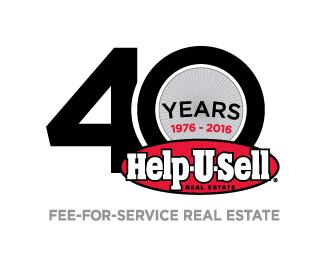I had a very interesting call with a Help-U-Sell Broker today. She was talking about her preference for working with Buyers, which is fine. Buyers are great.
However, the Help-U-Sell edge, our identity, is our low set fee offer to home sellers. It’s great to love buyers but your primary marketing thrust should be to find and list sellers. It is our LISTINGS that create the buyer leads that flow through the office.
‘What is it about the listing process you don’t like?’ I asked. ‘Is it the presentation and dealing with pricing issues or is it the followup and the communication?’
She prefaced her answer by saying, ‘Oh gee . . . this is going to sound really bad, but . . . what I really don’t like is . . . the whining!’
Sellers whine because they want a higher price or they want more or better marketing or they don’t think there’s enough activity or they don’t know what you’re doing and on and on. It’s just what they do.
Because that’s how ordinary Realtors pre-frame the relationship.
Think about it. In the ordinary real estate world, every company has the same tools. Every company has the same consumer offer (6%). There is no difference between companies beyond the color of their signs. In that world, sellers make their choice of listing agent based on personality. The key question becomes, ‘Do I like and trust you? Are you warm, friendly and accessible.’ Being the listing agent begins to look like becoming a friend.
An there ain’t nothin’ wrong with that . . . except that it erodes your power as a business professional. If the basis of your business relationship is personality and accessibility, people are going to be comfortable whining to you . . . which is to say they don’t really believe in what you’re doing and think if they will get better results by putting pressure on you.
Help-U-Sell is different. We charge less and we charge differently because we have marketing and back office systems that get the job done quickly and efficiently. While we all have wonderful personalities, that’s not what we sell on the listing consultation. We sell our step-one, step-two systems. A business relationship based on systems is much more business-like.
Here’s an example:
I have a financial adviser who manages my paltry retirement account. He’s a friend and was for years before I moved my account to his firm. He’s a delightful guy and he clearly knows his business backwards and forwards, but . . . when I went to his office for our first meeting, he quickly introduced me to his two assistants, each of whom has specific functions and then excused himself.
The message was clear: we are a business based on systems. We don’t make it up as we go along. I have competent personnel who manage my accounts with my supervision. This frees me to focus on creating more business and making sure the system works as designed.
Here’s the thing: I still talk with my friend who happens to be my financial adviser, but I would never ask him about the details of my account. He trained me during that first meeting that my questions can all be handled by his team, and that’s the way they do business. (It was helpful that the assistants were knowledgeable and impressive.)
That’s how you need to behave on the Listing Consultation. It’s not about you (although they’re going to love you). It’s about your systems. You’re not a loosey goosey real estate person, running around like a chicken with your head cut off, available 24/7 to handle every issue that may arise (real or imagined).
I’m suggesting that you become more business-like when you do a listing consultation. Yes, be warm and friendly, but stay focused and on track. Your Help-U-Sell office is a machine based on systems. When we plug a properly priced listing into this machine it spits out successful sales and happy sellers! Your sparkling personality is nice but it’s not what gets the job done.
So: start having your sellers come into your professional place of business for the listing consultation. Fine tune your consultation so that you can get through it in 30 minutes (+/-). Take a few minutes explaining the process and how things will go – and maybe create a graphic to illustrate it. Pre-frame your listing relationship as a business relationship. Let all of those ordinary Realtors sow personality and reap the whinies!

